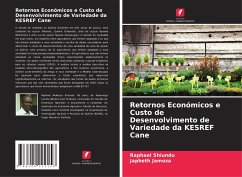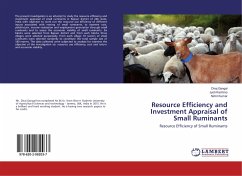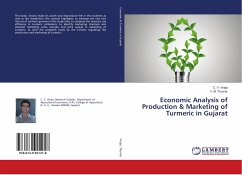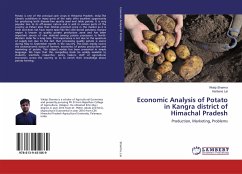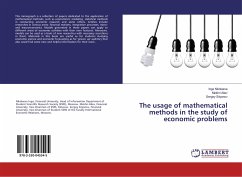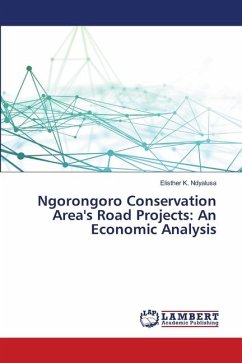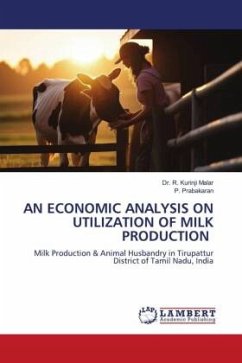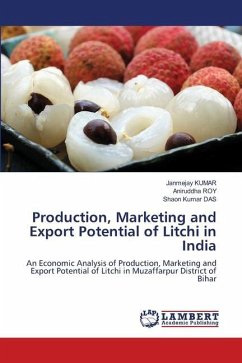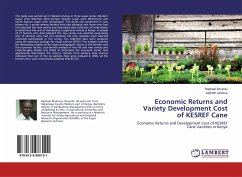
Economic Returns and Variety Development Cost of KESREF Cane
Economic Returns and Development Cost of KESREF Cane Varieties in Kenya
Versandkostenfrei!
Versandfertig in 6-10 Tagen
27,99 €
inkl. MwSt.

PAYBACK Punkte
14 °P sammeln!
The study was carried out in Western Kenya in three sugar zones: Western Sugar zone (Mumias, West Kenya), Nyando sugar zone (Muhoroni) and South Nyanza sugar zone (Sonysugar). The study was conducted in two phases viz; a survey among farmers who had adopted and those who had not adopted the new variety and Secondary data collection of information to determine the cost of developing a sugarcane variety in Kenya. A sample of 21 farmers who had adopted the new variety was selected purposively and 19 farmers who had not adopted the new varieties were selected randomly participated in the survey. T...
The study was carried out in Western Kenya in three sugar zones: Western Sugar zone (Mumias, West Kenya), Nyando sugar zone (Muhoroni) and South Nyanza sugar zone (Sonysugar). The study was conducted in two phases viz; a survey among farmers who had adopted and those who had not adopted the new variety and Secondary data collection of information to determine the cost of developing a sugarcane variety in Kenya. A sample of 21 farmers who had adopted the new variety was selected purposively and 19 farmers who had not adopted the new varieties were selected randomly participated in the survey. The collected data were analyzed using the statistical package for social sciences (SPSS). The analysis included the descriptive analysis of the socio-demographic status of the farmers and the economic factors, cost-benefit analysis of the old and new variety and Cobb-Douglas Model was fitted to determine the economic factor that significantly determines the returns. Results from primary datasources indicated that out of the six varieties that were released in 2002, all the farmers who were interviewed adopted KEN 83-737.



